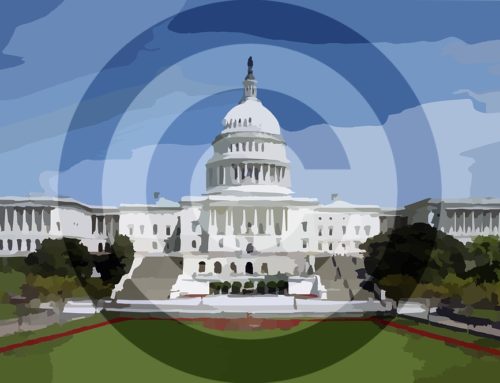
On June 23rd, 2016, citizens of the United Kingdom went to the polls to vote on whether or not the UK would remain a member of the European Union. The vote was a contentious one, but in the end 51.9% of those who voted opted to leave the union. As a result, England, Scotland, Wales and Northern Ireland are set to exit the EU by April 2019. This vote has caused a great deal of controversy between the two sides of the argument. Those in favour of leaving the union argued that the EU membership caused restriction for the overall agency of the UK, and that leaving the union would bring about greater border security and business rights. Those who argued against leaving claimed that participating in the single market system established by the EU was of great benefit to the UK and its economy. Ultimately, voters chose to leave the union, and – although this vote was not legally binding – the UK government is moving ahead with its plans to leave and will become the first country to do so since the EU was established in 1993. This action will have far-reaching ramifications for the entire nation and its citizens; one of the most notable impacts will be a cultural one. Following Brexit, the UK’s music industry is likely to suffer in the following areas.
Touring
Perhaps the most notable impact that Brexit will have on the music industry will come in the form of the physical movement of musicians. In its most drastic scenario, that of a “no-deal” departure from the European Union, musicians will find themselves limited in their movement across Europe. Whereas musicians could previously tour throughout Europe with few barriers and restrictions, Brexit will impact the regulations that deal with entering and leaving the country. This could create complex and expensive restrictions for touring musicians, as it may require musicians to obtain individual visas to enter each EU country. This may also coincide with the introduction of a carnet – that is, a document which details all equipment used by the touring musician or group in an effort to prevent the import or export of products. This document would cost between £1000 – £2000 and would need to be renewed every year. Such restrictions would obviously place a significant financial strain on independent musicians and could severely limit their ability to tour. This is troubling news, considering the fact that most musicians make the majority of their income from touring, given the downfall of physical music sales in recent years.
Although Brexit hasn’t taken full effect yet, the implications of tightened borders have already begun to affect the music industry. Most recently, Britain’s famed Womad Festival had several artists back out of their performances at the last minute because of what was described by festival organizer Chris Smith as “oppressive visa restrictions”. While this caused disarray for this year’s edition of the festival, Smith has said that more performers have begun to decline invitations to perform in Britain because of what they’ve described as a “humiliating” process to obtain a visa. Although the visa process itself has not changed substantially, many artists have claimed that the UK is one of most difficult countries to enter, with the Home Office providing little communication in regards to visa applications. It seems that visa applications have been accepted or denied on a subjective basis, with some artists saying that refusals have been given due to supposed financial liability. At the Edinburgh International Book Festival, one artist was reportedly asked to supply a marriage certificate, a birth certificate, three years’ worth of bank statements,and had to complete a biometric test. In regards to the visa application process, Nick Barley, the director of the festival said: “He was so humiliated by [the process] that he decided he didn’t want to go through with the process of coming to Edinburgh to talk. I persuaded him to stick with it and thankfully we got the visa, but this is just one example of the kind of crazy things people are being made to do…”
Industry executives are fearful that once Brexit is signed into law, the process to obtain a visa will become even more restrictive for performers.
Copyright Issues
Another significant aspect of Brexit’s impact on the music industry would come in the form of copyright regulations for record labels. When Brexit withdraws from the EU, it will force label executives to negotiate copyright regulations without the aid that has historically been provided by the European Union. This will put the UK at a disadvantage when it comes to dealing with massive corporations such as Apple and Google. This is especially troublesome at a time when Europe is attempting to create what is referred to as a “digital single market” in which online content would be accessible across all European countries.
Sale of Music
As Brexit impacts the availability of online content, it would also impact the sale of physical music. This will likely come in the form of tariffs and taxes on the import of international music. For example, if you are in the UK and you wish to purchase an album that was released in Germany, it is likely that the cost of that album will increase as it will be subject to import taxes. This could have a significant impact on record stores in the UK, and the music industry as a whole, given the recent resurgence in vinyl records. As it stands, most vinyl manufacturing plants are based in mainland European countries. Following the passage of Brexit, it will become more expensive to import records to the UK and more expensive to purchase records. While this will directly affect the consumer, it will also have a significant impact on revenue streams for the music industry as a whole over time.
Funding
Finally, Brexit’s impact on musicians will come in the form of funding that has previously been provided by the European Union. As it stands, the EU supports numerous programs such as Music Moves Europe and Creative Europe that provide funding and support to musicians across Europe. Following Brexit, musicians in the UK will no longer have access to these resources, which will put them at a disadvantage in comparison to musicians in other countries. These programs are far-reaching and support more than just musicians themselves; funding is provided to music venues, record labels and more. Unless the UK announces plans to supplement these cuts, a scenario will come about in which musicians and other areas of the music industry are unable to function at the capacity they have been used to.
Although lawmakers in the UK still have many hurdles to overcome before Brexit is officially signed into law, the effects of the vote have already begun to impact the UK’s music industry. International musicians are already facing an uphill battle in regards to entering the UK, and it seems as though this process will only become more restrictive in the coming years. Furthermore, UK artists – along with record labels and distributors – will feel the sting of Brexit themselves with restricted access to funding, higher taxes on the sale of music and increased regulation on music copyright throughout Europe. Although the creative industry will likely adapt to these changes over time, the consequences of Brexit are sure to be extensive and widespread. Not only will Brexit have repercussions for musicians in the UK and those looking to enter the UK, it will also affect consumers in the UK. For now, we can only hope that a deal is met by April 2019 that satisfies both sides while maintaining some semblance of freedom for artists and consumers alike.




